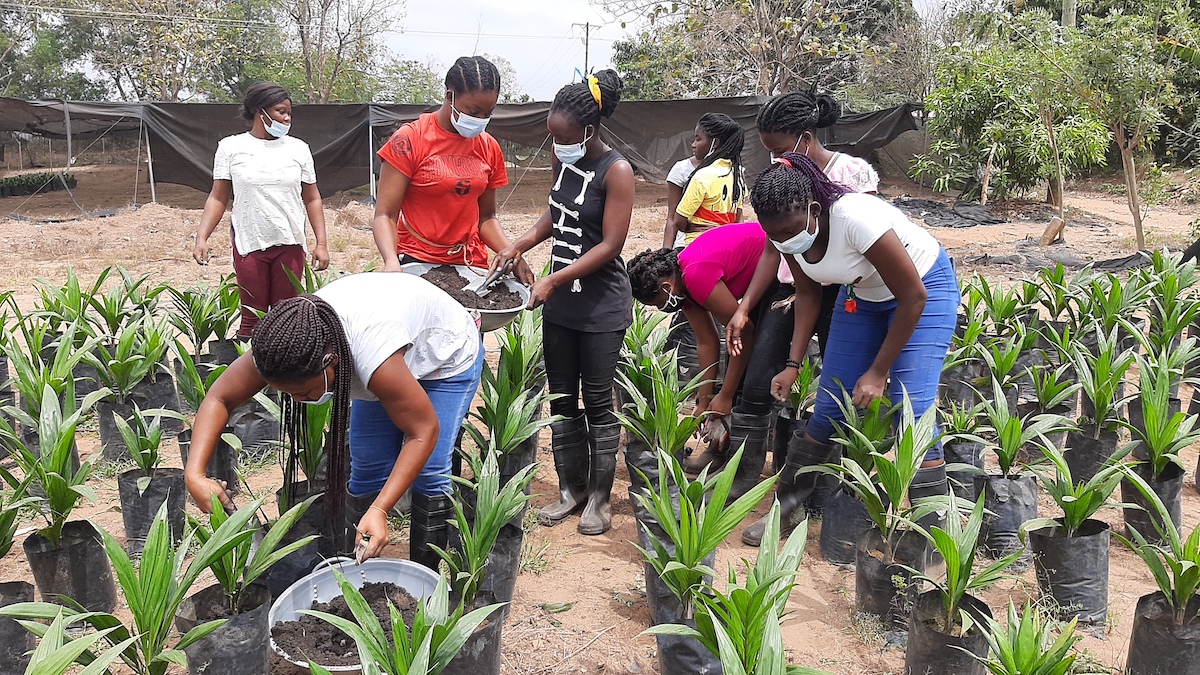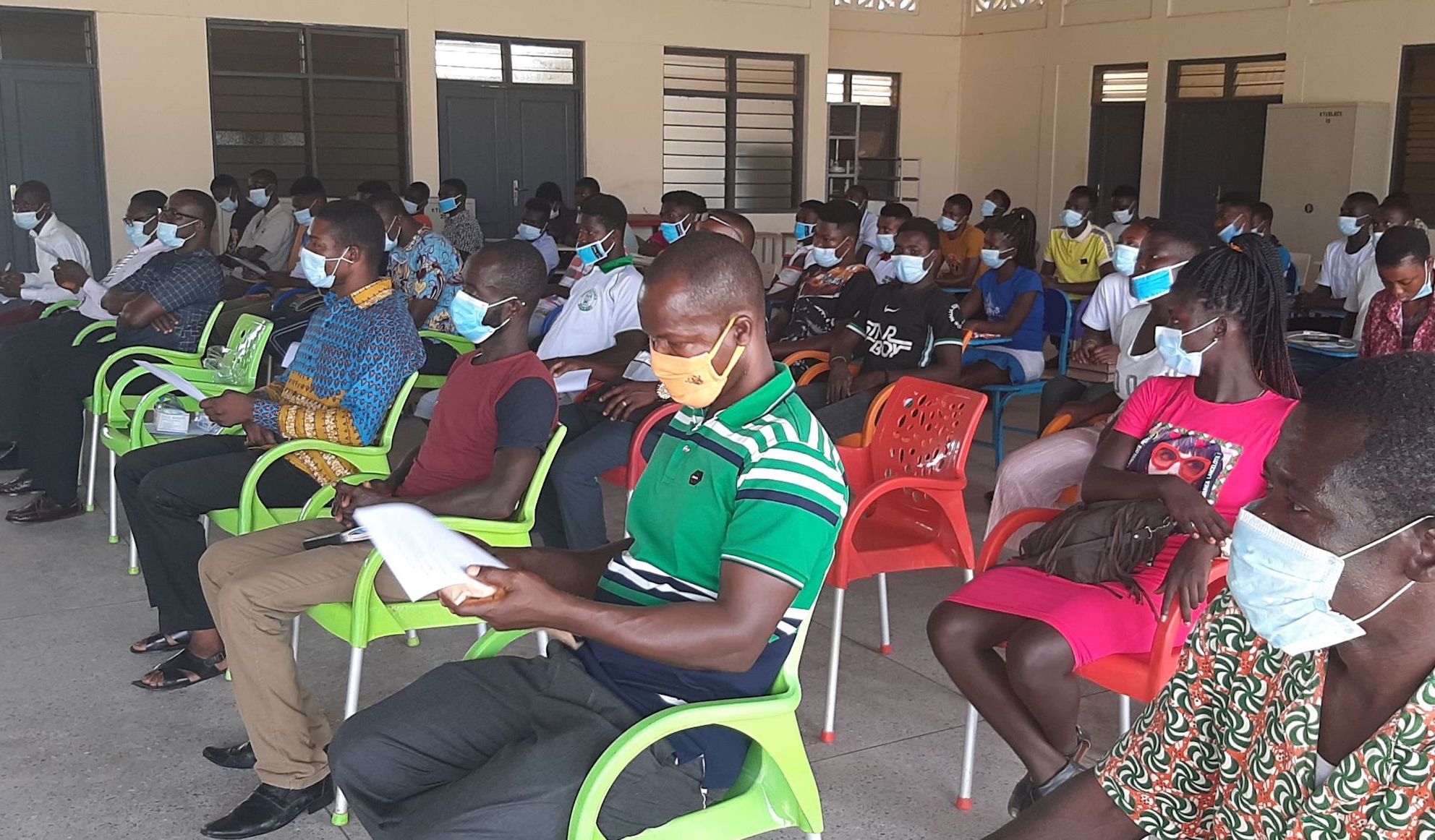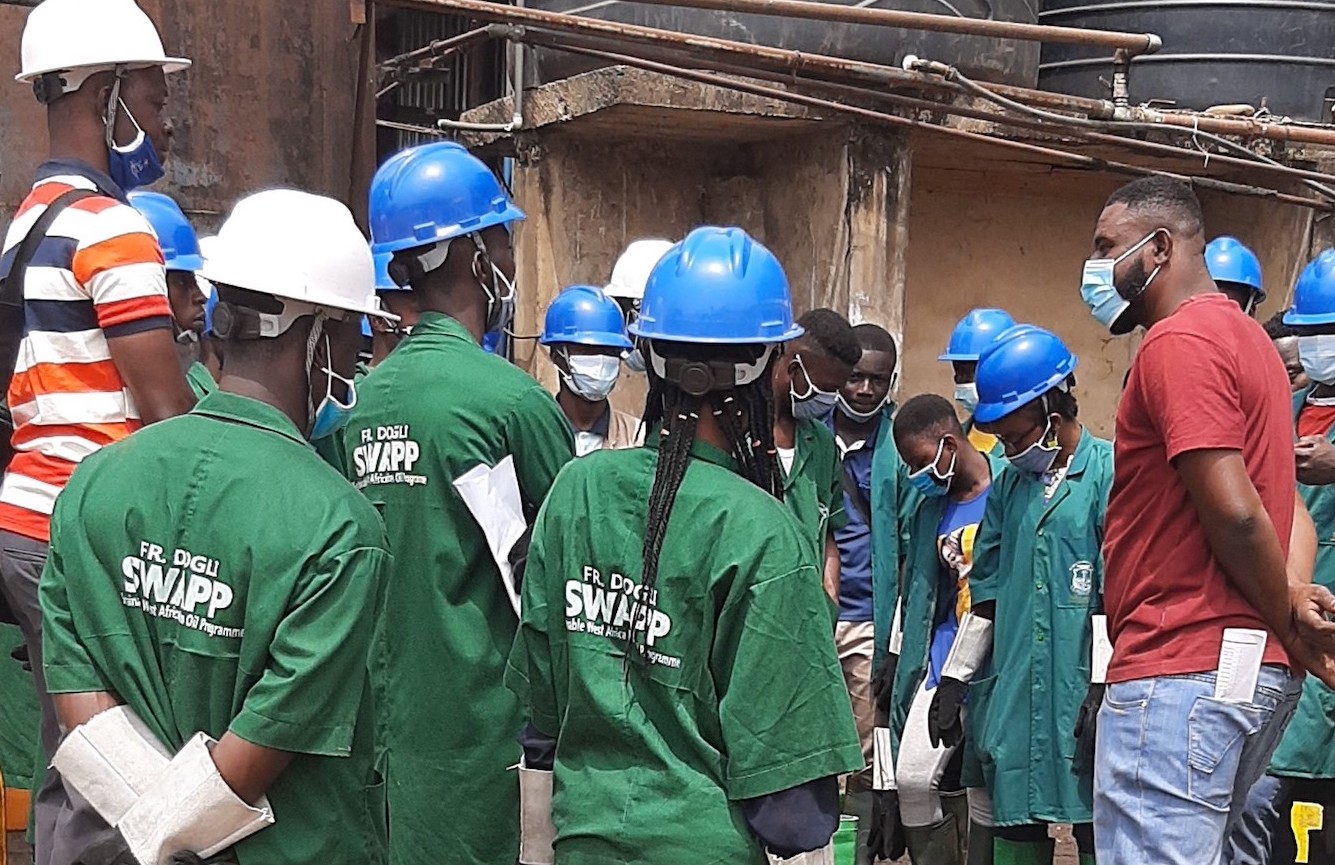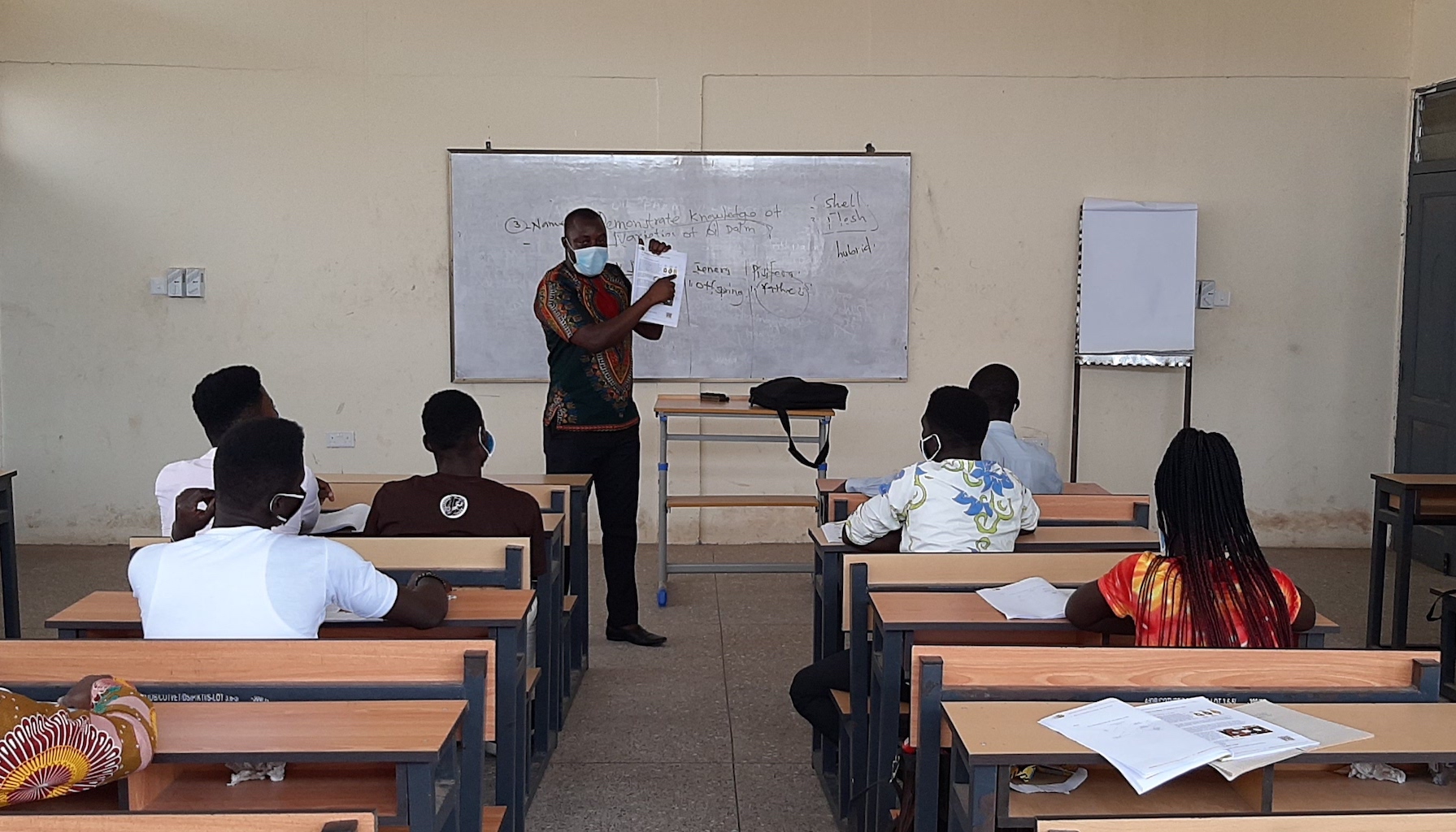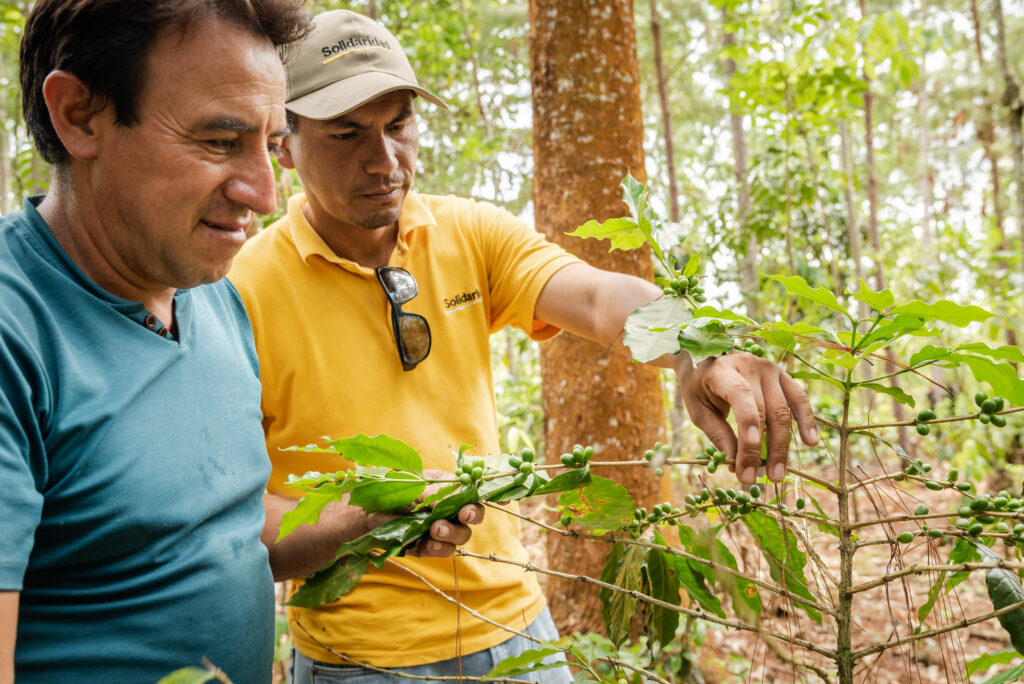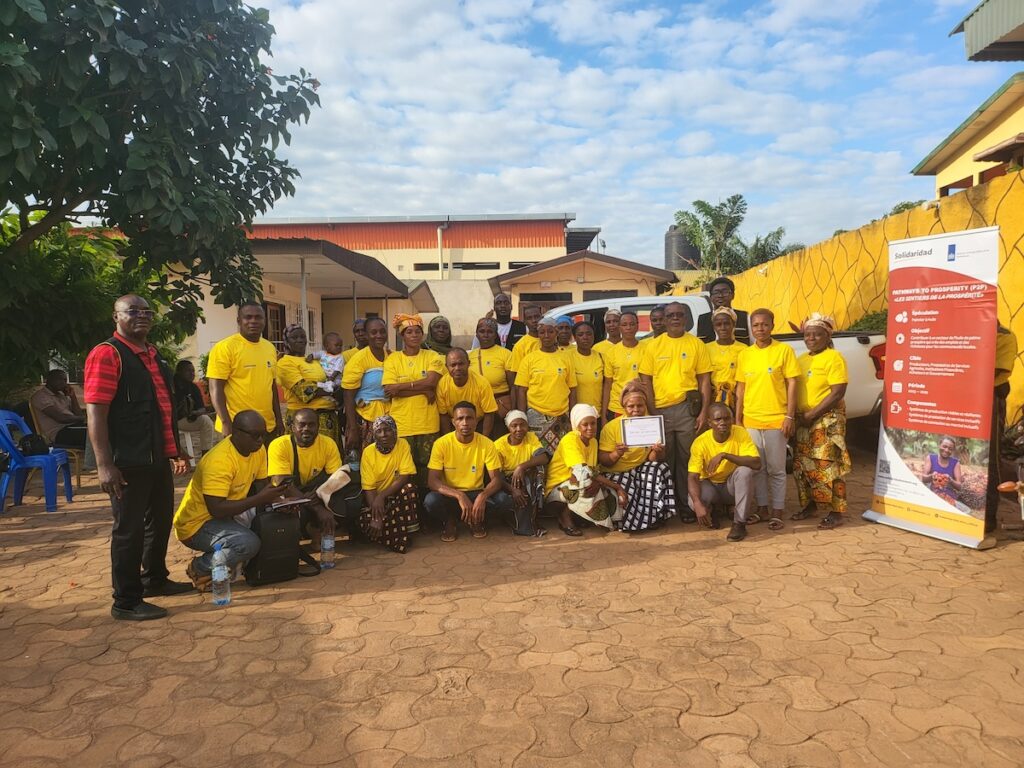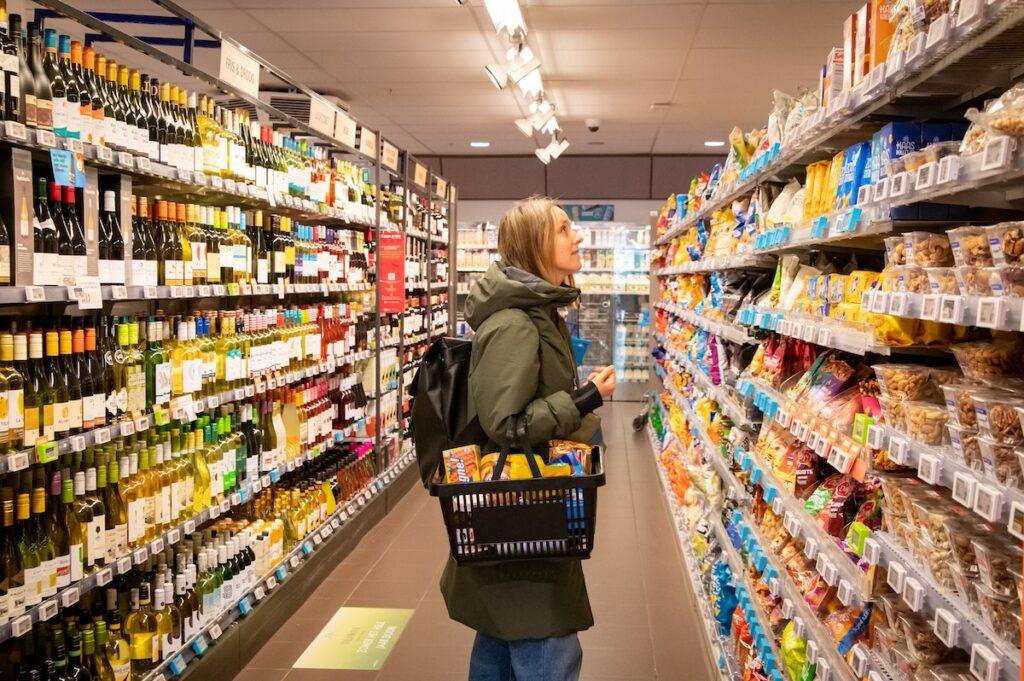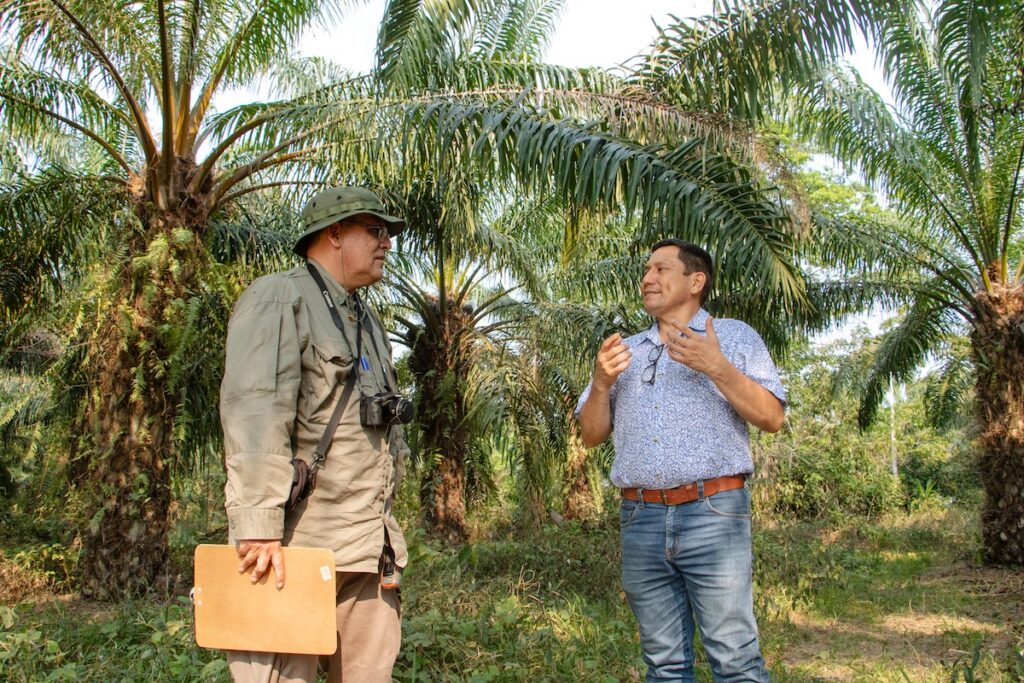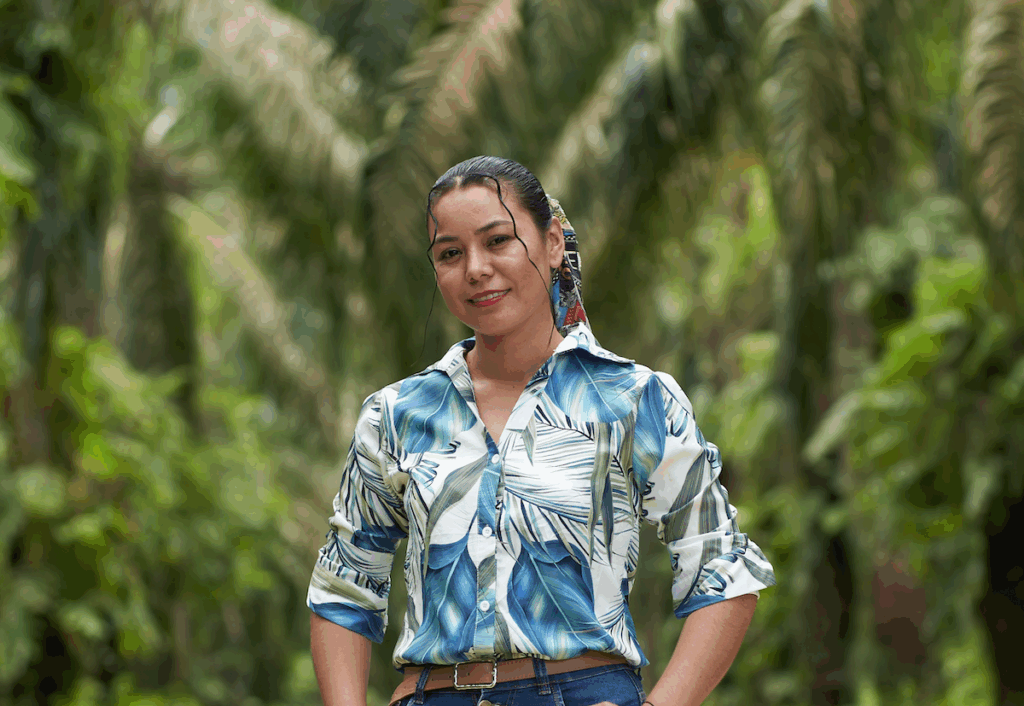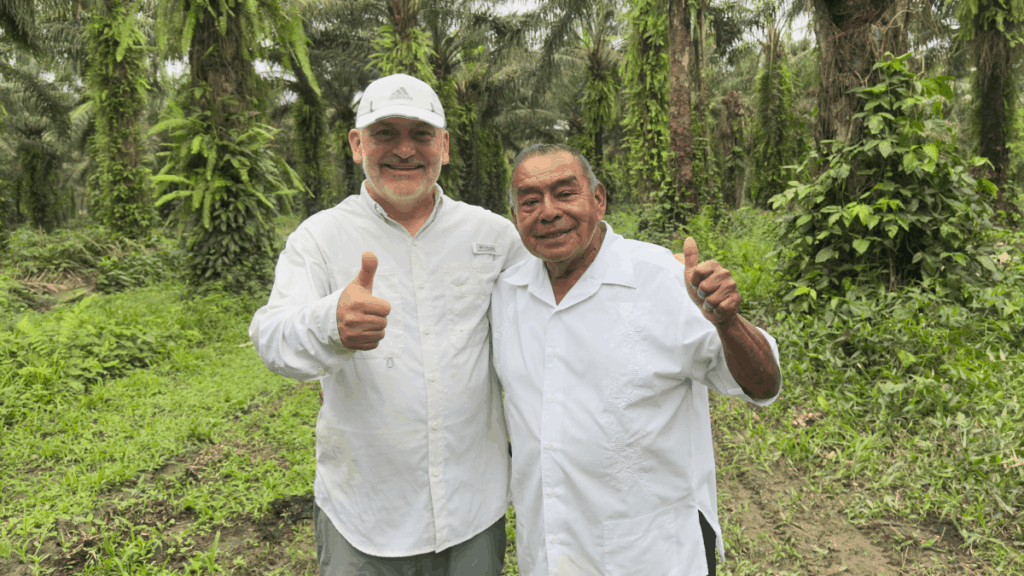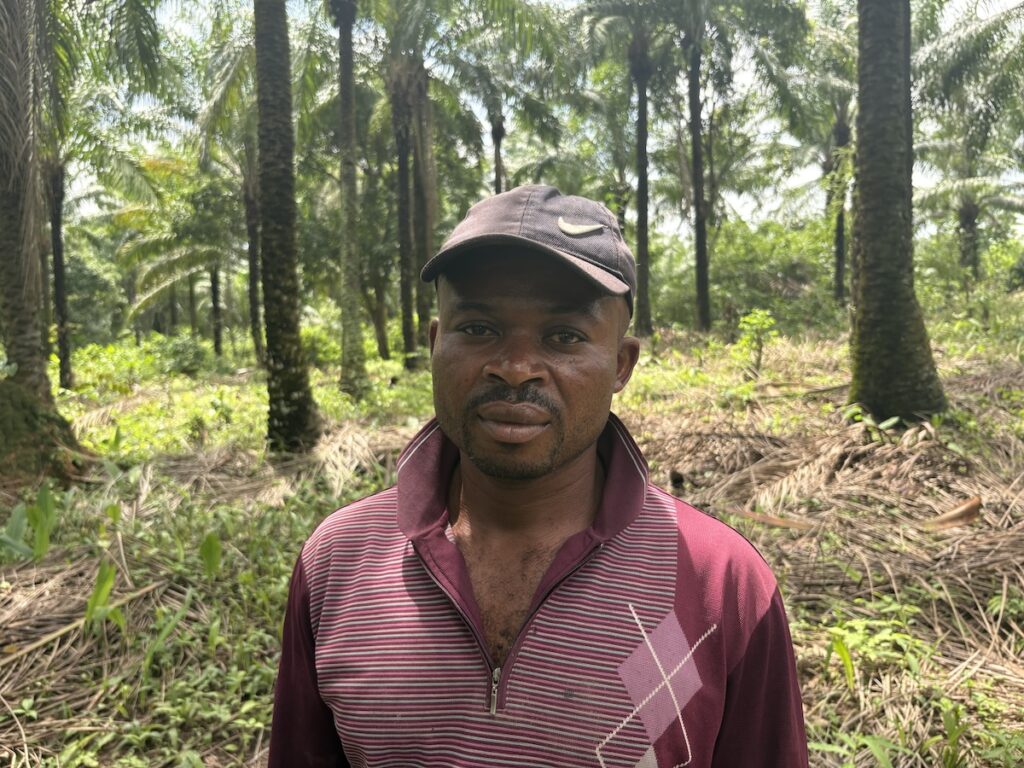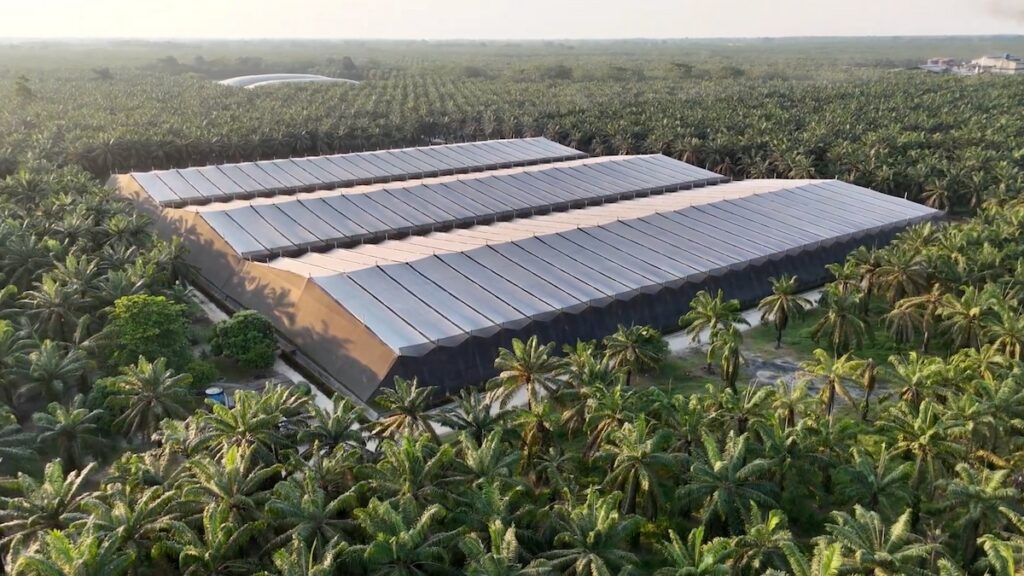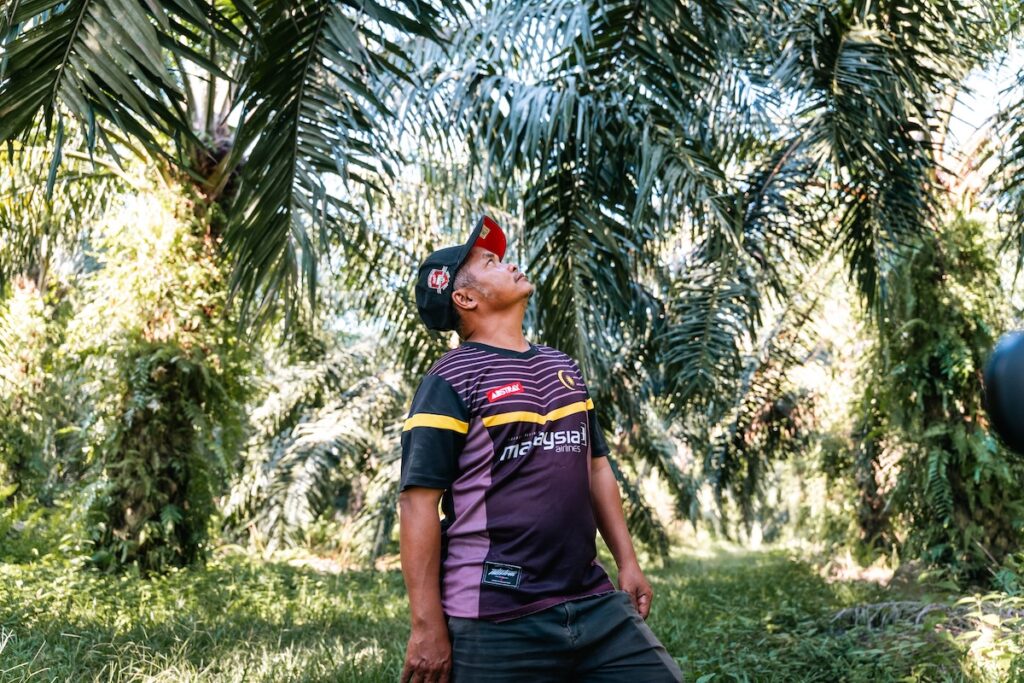The first of its kind in the country, the training is accredited by the Council for Technical and Vocational Education Training (COTVET), the national regulator, and would be in two batches. The initial batch of learners, drawn from oil palm-growing communities and oil palm enterprises in Ghana, will undergo the training for a ten-week period, which will involve instruction time and internship.
So far, five educational institutions accredited by COTVET are running the training programme to provide support in six modules including nursery establishment, land preparation, plantation establishment, harvesting, farm management, plant protection, chemical application, processing, quality assurance and agribusiness management.
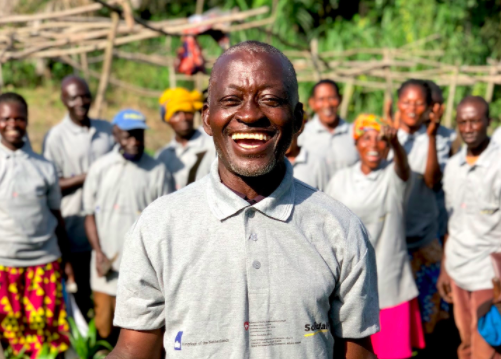
Empowering farmers to improve productivity
At Kofiase, a community in the Mampong municipality of the Ashanti region of Ghana, members of a Village Savings and Loan Association (VSLA) are on their way to getting a bumper harvest due to an investment in improved oil palm seedlings.
Solidaridad developed the competency-based training in partnership with the Ghana Skill Development Initiative under the implementation of the second phase of its Sustainable West Africa Palm Oil Programme (SWAPP II).
The programme is supporting the youth learners with funding from the Embassy of the Kingdom of the Netherlands in Accra, the Swiss government through its State Secretariat for Economic Affairs (SECO), and the Deutsche Gesellschaft für Internationale Zusammenarbeit GmbH (GIZ).
At a ceremony to officially enroll the learners, Joshua Dzigbah, a representative of the Kpando Municipal Directorate of Education, a government entity that endorses the training, said the need to include skills acquisition in the education curriculum as an answer to the human resource needs of industries.
He commended Solidaridad for spearheading such a novel initiative and also urged the learners to take advantage of the opportunity to equip them with the requisite skills to strategically position themselves in Ghana’s industrialization agenda.
Solidaridad’s commitment to youth inclusion
The Programme Manager for the Sustainable West Africa Palm Oil Programme, Nicholas Issaka Gbana, said the competency-based training, which is under the skills for employment component of SWAPP II, seeks to provide technical and vocational training to equip young people with employable skills for the oil palm sector.
Creating employable skills and opportunities for young people is a crucial intervention to ensure the sustainability of the oil palm sector in Ghana.
NICHOLAS ISSAKA GBANA, PROGRAMME MANAGER FOR SUSTAINABLE WEST AFRICA PALM OIL PROGRAMME
“When young people are empowered with the right knowledge, skills and training, they are better placed to set up businesses in the oil palm supply chain to help boost Ghana’s profile in the global palm oil production space,” says Nicholas.
Stepping up support for ATVET
In 2019, Solidaridad, under the Sustainable West Africa Palm Oil Programme, supported the partner institutions with Council for Technical and Vocational Education Training accreditation, as well as tools and equipment to run the training programme.
In partnership with the Ghana Skills Development Initiative and the Council for Technical and Vocational Education Training, Solidaridad in 2020 provided technical upskilling training to lecturers and tutors from the five partner educational institutions on the oil palm ATVET curriculum.
The Sustainable West Africa Oil Palm Programme seeks to contribute to the transformation of the oil palm sector in West Africa, increase incomes of smallholder farmers and processors, and generate economic growth and jobs. SWAPP II is part of Solidaridad’s global agenda to build sustainable supply chains.

